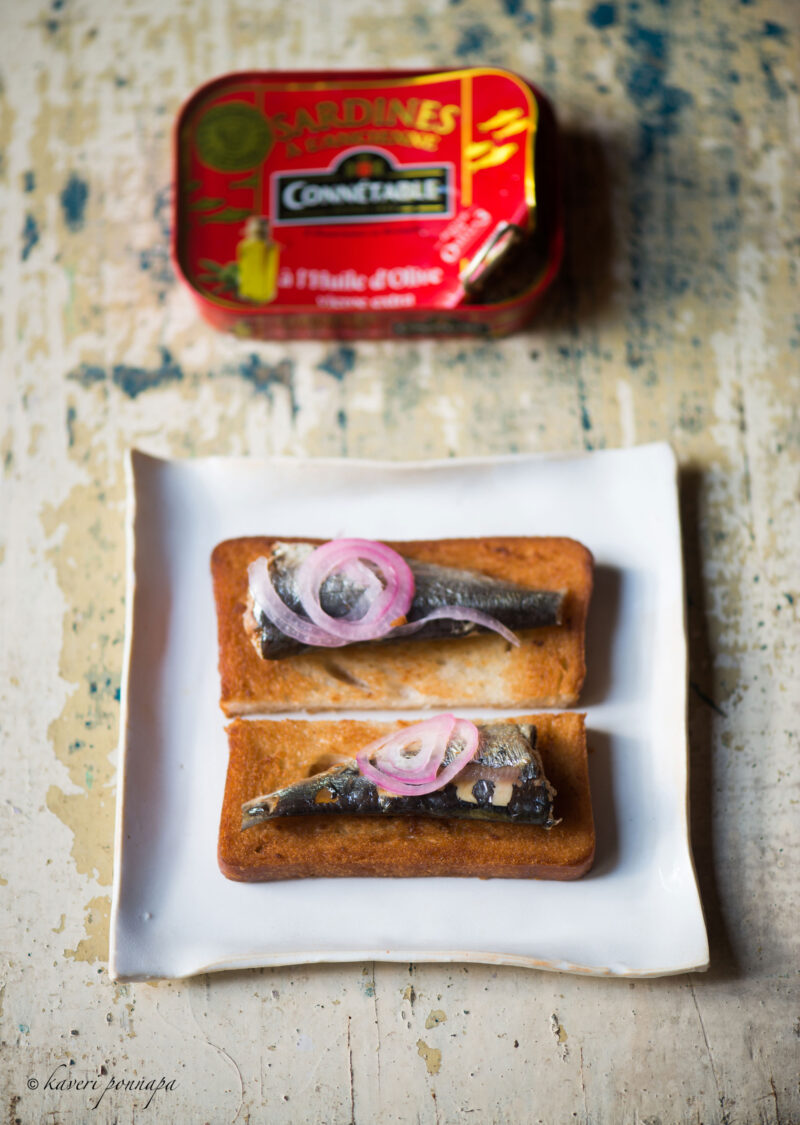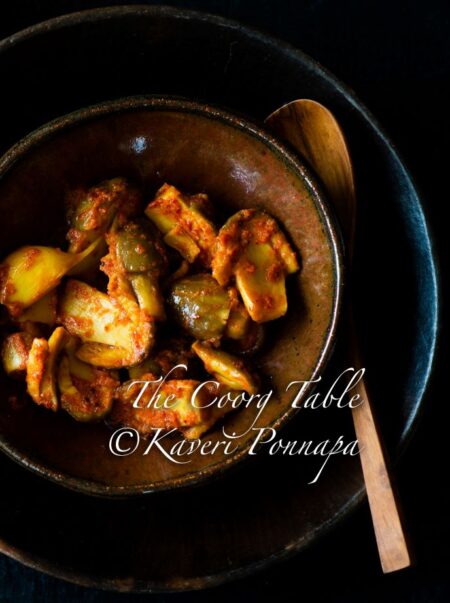The pantry cupboard in plantation homes always held neat piles of tinned foods and fruits to tide over emergencies and the heavy monsoons, when mildew grew thick and fast over everything. Spoilt with a never ending supply of fresh produce from kitchen gardens, the labels on these neat tins and their contents seemed impossibly exotic and luxurious. It would take a long time to reverse this opinion. Even cream came in a tin that was rolled on the floor to churn it up, before the top was cut open laboriously with a can opener that looked like a mini scythe, and left dangerously jaded edges on the rim. The sardine cans had fascinating little keys stuck on their backs beneath the label, which were used to prise up a little flap and roll the top back. Invariably, it snapped off halfway through, leaving you no option but to slide the sardines out messily through a half opened top.
Tinned sardines on toast were are real treat on rainy days, consumed slowly, lingering over every oil-soaked bite, nose buried in a mystery novel borrowed from the Club library. The toast, of course, was never toast, but white bread, deep-fried a warm golden brown. It was topped with a fat, oily sardine and a blob of tomato ketchup. It was a match made in heaven for the book you were reading, taking you as close to perfect happiness as is possible.
To make sardines on toast: use the best quality tinned sardines in olive or vegetable oil that you can find. Connetable is a French brand around since 1853, the tins filled with firm textured, meaty sardines. Happily, they come in ring-pull cans, so no more struggles with primitive can openers. Deep fry whole slices of white bread in hot vegetable oil until golden brown. Drain on newspaper and then slice in half lengthwise. Place a sardine on the sliced bread and top with very thinly sliced onions that have been soaked in white vinegar, water and a little sugar for a couple of hours, then drained. The pickled onions add a lovely, sharp bite to the sardines. Or you could stick to a blob of tomato ketchup, if you wish.
Image Credits: Nithin Sagi




